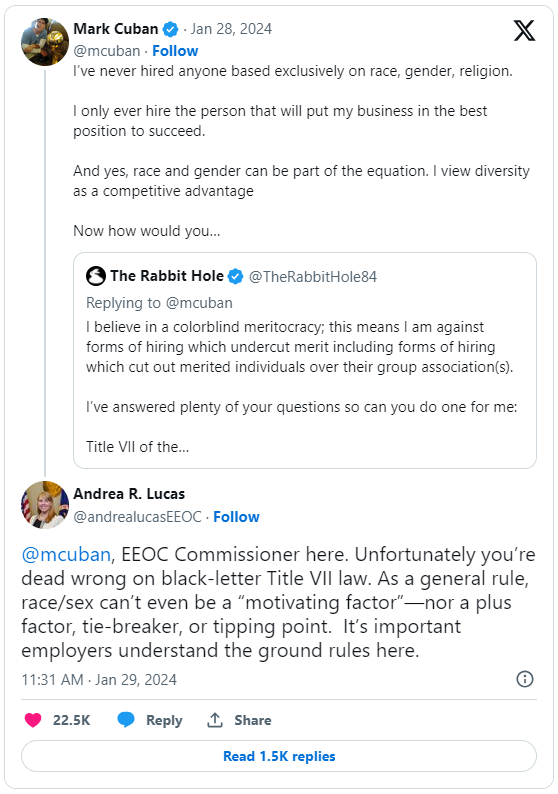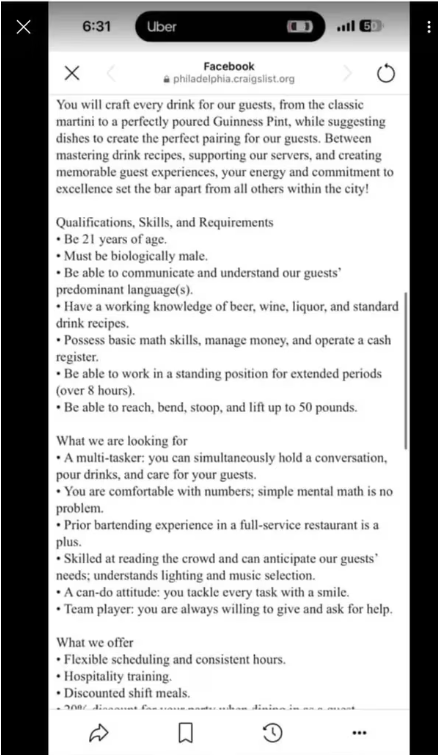Search
Can employers legally favor transgender employees over cisgender employees?

The words “cisgender” or “non-transgender” employee appear nowhere in Title VII of the Civil Rights Act of 1964, the federal workplace law that outlaws gender discrimination. But, according to a Pennsylvania federal judge, “that does not preclude the possibility that discrimination against both a cisgender male and cisgender female may be independent Title VII violations.”
I’ll explain why. Continue reading
 The Employer Handbook Blog
The Employer Handbook Blog












